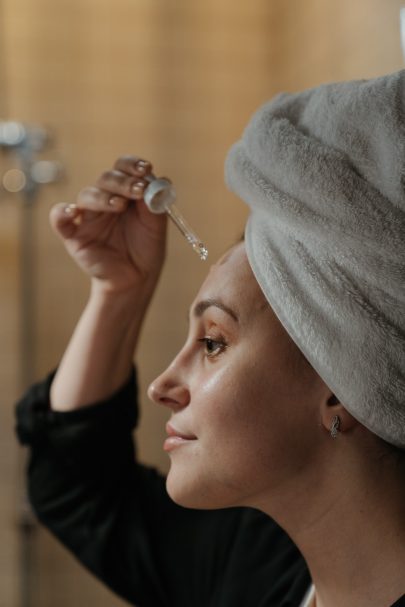Even though retinol boasts healthy, youthful skin benefits, it poses a risk to a developing foetus. Let’s get into what retinol really is, and why pregnant women should be avoiding it.
What is retinol?
Retinol is a form of vitamin A that belongs to a group of compounds known as retinoids. It is commonly used in skincare products for its remarkable ability to address a variety of skin concerns, including fine lines, wrinkles, uneven skin tone, and acne.
It works by stimulating collagen production, accelerating cell turnover, and improving the overall texture and appearance of the skin.

Why pregnant women should avoid using retinol
While retinol has proven benefits for many individuals, it should not be used during pregnancy. It’s true that vitamin A is crucial to the proper development of the foetus, but getting too much of it can cause serious birth defects and liver toxicity, amongst other serious issues.
Here’s why pregnant women should avoid using retinol:
Potential birth defects
High doses of vitamin A, including retinol, have been associated with an increased risk of birth defects when taken orally or applied topically during pregnancy. The developing foetus is particularly sensitive to excessive amounts of vitamin A, making it crucial for pregnant women to avoid retinol-containing products.
Accidental ingestion
Topical retinol products have the potential to be absorbed into the bloodstream, which can pose a risk to the developing foetus. Accidental ingestion, even in small amounts, should be avoided to prevent any potential harm.
Safer alternatives
Pregnant women can explore alternative skincare options to maintain their skin health. Ingredients like hyaluronic acid, niacinamide, and antioxidants are generally considered safe during pregnancy and can help address specific skin concerns without the potential risks associated with retinol.
Remember, maintaining healthy skin during this special time can be achieved through other safe and effective skincare alternatives. Prioritise gentle cleansing, moisturising, and ingredients recommended for pregnant women to ensure both your skin and your baby’s health remain the top priority.
ALSO SEE: Pregnant but need to fly to your next adventure? 4 things you need to know
Always consult with a healthcare professional or midwife for advice on safe skincare practices during pregnancy.
ALSO SEE:
Feature Image: Pexels

